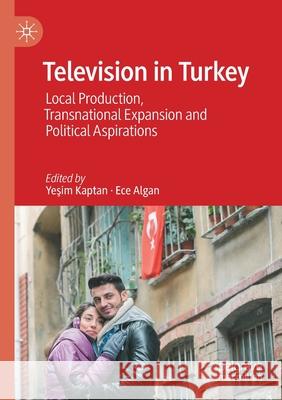Television in Turkey: Local Production, Transnational Expansion and Political Aspirations » książka
topmenu
Television in Turkey: Local Production, Transnational Expansion and Political Aspirations
ISBN-13: 9783030460532 / Angielski / Miękka / 2021 / 294 str.
Television in Turkey: Local Production, Transnational Expansion and Political Aspirations
ISBN-13: 9783030460532 / Angielski / Miękka / 2021 / 294 str.
cena 483,04
(netto: 460,04 VAT: 5%)
Najniższa cena z 30 dni: 462,63
(netto: 460,04 VAT: 5%)
Najniższa cena z 30 dni: 462,63
Termin realizacji zamówienia:
ok. 22 dni roboczych.
ok. 22 dni roboczych.
Darmowa dostawa!
Kategorie:
Kategorie BISAC:
Wydawca:
Palgrave MacMillan
Język:
Angielski
ISBN-13:
9783030460532
Rok wydania:
2021
Ilość stron:
294
Waga:
0.38 kg
Wymiary:
21.01 x 14.81 x 1.68
Oprawa:
Miękka
Wolumenów:
01
Dodatkowe informacje:
Wydanie ilustrowane











